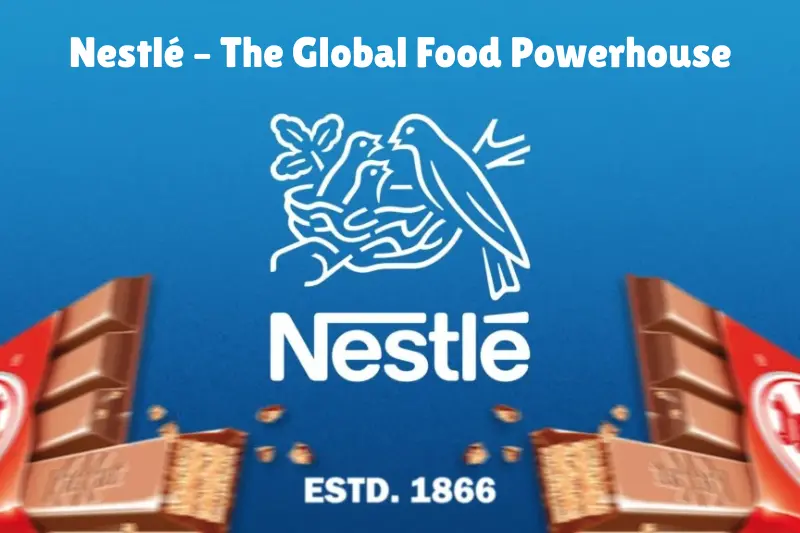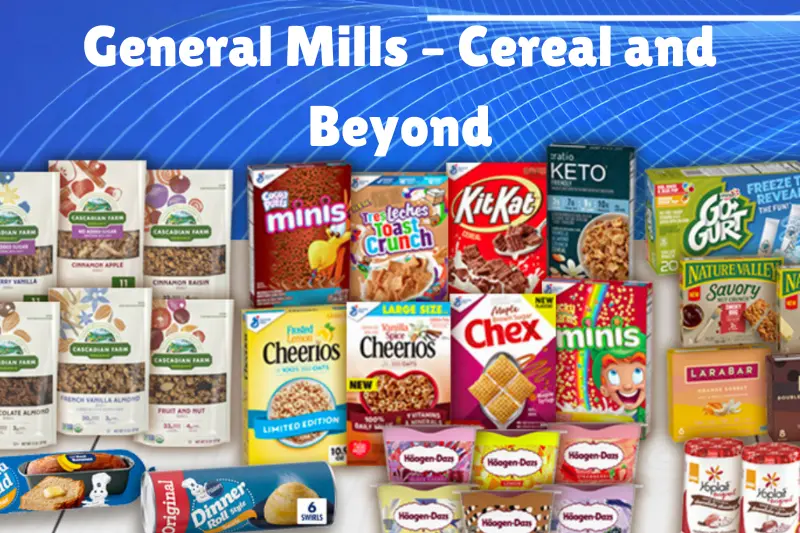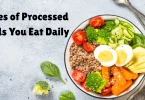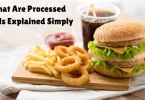The food processing industry today is about much more than just convenience—it’s shaping the way we eat, live, and even think about health. From nutritious snacks to eco-friendly packaging, the top processed food brands in the market are leading the way in innovation while responding to global health and environmental concerns.
In our busy lives, not everyone has the time to prepare meals from scratch. That’s why products like frozen veggie bowls from Birds Eye, protein-packed snack bars from Nature Valley, or ready-to-drink smoothies from Naked Juice have become everyday staples. But modern consumers want more than just quick and tasty options—they want foods that are healthy, sustainable, and aligned with current diets such as vegan, flexitarian, or gluten-free.
To keep up, major food brands are revamping their offerings with less sugar, more plant-based ingredients, and eco-conscious packaging, proving that processed foods can be both convenient and responsible. Let’s take a closer look at the top processed food brands in the market that are leading this exciting transformation.
1. Nestlé – The Global Food Powerhouse

Nestlé is perhaps the most recognizable name in the processed food industry. With a portfolio that spans chocolates, beverages, dairy, infant nutrition, and pet food, it reaches nearly every household worldwide.
- Famous Brands: KitKat, Maggi, Nescafé, Gerber, Perrier.
- Innovation: Nestlé has been reducing sugar and sodium across its product line while investing heavily in plant-based foods, like vegan burgers and non-dairy drinks.
- Sustainability: The company aims to achieve net-zero emissions by 2050 and is working toward 100% recyclable packaging.
Nestlé’s adaptability makes it a leader among the top processed food brands in the market.
2. PepsiCo – Beyond Beverages
While Pepsi is its flagship, PepsiCo owns a wide range of food and beverage brands that have become household staples.
- Famous Brands: Lay’s, Doritos, Gatorade, Tropicana, Quaker Oats.
- Innovation: PepsiCo has invested in baked snacks, oat-based products, and low-calorie beverages to meet demand for healthier snacking.
- Sustainability: The company is committed to reducing plastic waste and using more eco-friendly packaging.
With its broad portfolio, PepsiCo is a giant in both the indulgence and health-conscious markets.
You may also like to read this:
16 Common Types of Processed Foods You Eat Daily
Why People Prefer Ready-To-Eat Meals For Busy Lifestyles
13 Best Healthy Alternatives To Processed Meals For Everyone
How Are Frozen Meals Made In Factories: Complete Guide
What Nutrition Facts Mean on Food Labels – Complete Guide
3. Kraft Heinz Company – Tradition Meets Innovation
Kraft Heinz is best known for iconic products like ketchup, cheese, and packaged meats, but it’s also evolving with the times.
- Famous Brands: Heinz, Kraft, Oscar Mayer.
- Innovation: The company is working on expanding its plant-based offerings and cutting artificial ingredients.
- Sustainability: Kraft Heinz is investing in renewable energy and eco-friendly packaging to reduce its carbon footprint.
4. Mondelez International – Snacking Giant
Mondelez dominates the snack industry with some of the world’s most loved confectionery and biscuit brands.
- Famous Brands: Oreo, Cadbury, Toblerone, Ritz, BelVita.
- Innovation: The company focuses on portion control, reduced sugar, and healthier snack lines.
- Sustainability: Mondelez is committed to making all packaging recyclable by 2025 and sourcing cocoa sustainably.
5. General Mills – Cereal and Beyond

Known for its breakfast cereals, General Mills has diversified into frozen foods, snacks, and even premium ice cream.
- Famous Brands: Cheerios, Nature Valley, Häagen-Dazs, Betty Crocker.
- Innovation: Heavy focus on gluten-free, organic, and plant-based products.
- Sustainability: Actively cutting greenhouse emissions and promoting regenerative farming.
General Mills has transformed itself into one of the top processed food brands in the market by aligning with health-focused trends.
6. Unilever – From Comfort Foods to Vegan Choices
Unilever is another multinational that has made major strides in balancing indulgence with health-conscious options.
- Famous Brands: Knorr, Hellmann’s, Ben & Jerry’s, Lipton.
- Innovation: Development of vegan ice cream and plant-based alternatives.
- Sustainability: Known for its ambitious plastic reduction goals and eco-friendly sourcing practices.
7. Tyson Foods – Protein Pioneer
Tyson is a dominant force in the processed meat segment, but it’s also moving toward the plant-based future.
- Famous Brands: Tyson Chicken, Hillshire Farm, Jimmy Dean.
- Innovation: Recently launched alternative protein products to compete with Beyond Meat.
- Sustainability: Tyson is investing in renewable energy and sustainable farming practices.
8. Danone – Dairy and Plant-Based Leader
Danone is all about health and nutrition, balancing dairy and plant-based categories.
- Famous Brands: Activia, Alpro, Silk, Evian.
- Innovation: Offers probiotic-rich yogurts and dairy-free milk alternatives.
- Sustainability: Strong commitment to water conservation and eco-friendly packaging.
9. Conagra Brands – Frozen Food Innovator
Conagra is known for its wide variety of packaged and frozen meals that fit into modern busy lifestyles.
- Famous Brands: Birds Eye, Healthy Choice, Hunt’s, Gardein.
- Innovation: Heavy focus on reducing sodium, adding plant-based proteins, and expanding healthier frozen meals.
- Sustainability: Targets recyclable packaging and responsible ingredient sourcing.
10. Beyond Meat & Impossible Foods – Disrupting the Market
These newer players have quickly made a mark by challenging traditional food companies.
- Famous Products: Plant-based burgers, sausages, and chicken alternatives.
- Innovation: Using food science to create meat-like textures and flavors without animal products.
- Sustainability: Both companies position themselves as eco-friendly alternatives to traditional meat, appealing to climate-conscious consumers.
The Future of Processed Food Brands
The top processed food brands in the market are no longer competing on taste alone. Today, success depends on:
Healthier Options – low-sugar, low-sodium, gluten-free, and plant-based.
Eco-Friendly Packaging – reducing plastic and using recyclable materials.
Sustainable Sourcing – ethical sourcing of cocoa, coffee, grains, and meats.
Personalized Nutrition – using data and technology to create tailored food solutions.
As consumer preferences evolve, companies that innovate in health, sustainability, and convenience will remain leaders.
Why Processed Food Brands Matter in Today’s World
The role of the top processed food brands in the market goes far beyond just putting packaged products on store shelves. These companies shape global food culture, influence dietary habits, and respond to pressing challenges such as climate change, population growth, and changing consumer preferences.
Here’s why they matter so much:
- Global Reach: Big brands like Nestlé, PepsiCo, and Unilever feed millions every day, making them central to food security.
- Health Awareness: With obesity and diabetes concerns on the rise, brands are reformulating products to be healthier.
- Sustainability Goals: From eco-friendly packaging to sourcing ingredients responsibly, these companies are responding to consumer and regulatory demands for greener practices.
- Innovation in Food Science: Plant-based meats, fortified cereals, and personalized nutrition solutions are all outcomes of ongoing innovation in the industry.
Consumer Trends Driving the Processed Food Market
The success of the top processed food brands in the market is closely tied to how quickly they adapt to changing consumer behaviors. Some key trends include:
- Rise of Plant-Based Eating
Vegan and flexitarian diets are no longer niche—they’re mainstream. This has pushed brands like Beyond Meat, Impossible Foods, and even Tyson to diversify with plant-based proteins. - Health-Conscious Choices
People are actively looking for products labeled low-sugar, gluten-free, organic, or probiotic-rich. General Mills and Danone are great examples of companies embracing this demand. - Convenience with Nutrition
Busy lifestyles mean consumers want ready-to-eat or frozen meals, but without sacrificing nutrition. Conagra’s Healthy Choice line and Nestlé’s prepared meals are leading this space. - Eco-Friendly Expectations
From recyclable packaging to reducing food waste, sustainability is now non-negotiable. Companies that innovate in this area not only win customer trust but also meet stricter regulations. - Technology and Personalization
Some companies are experimenting with AI and data-driven nutrition to create personalized diet plans. This could redefine the future of processed foods.
Challenges Facing Processed Food Brands
Even though these companies are thriving, being among the top processed food brands in the market comes with its own set of challenges:
- Health Criticism: Processed foods often face backlash for being linked to obesity, diabetes, and lifestyle diseases.
- Competition from Local & Organic Brands: Smaller, organic-focused companies are gaining consumer loyalty for their “clean label” products.
- Supply Chain Issues: Global disruptions like pandemics, inflation, and trade restrictions affect ingredient sourcing and pricing.
- Sustainability Pressure: Meeting global climate targets while staying profitable is a constant balancing act.
Looking Ahead: The Next Phase of Processed Food
So, what’s next for the top processed food brands in the market? Experts predict a few key directions:
- Lab-Grown & Cultivated Foods: Expect to see more progress in lab-grown meat and dairy alternatives.
- AI-Driven Nutrition: Personalized diet recommendations from major brands using data and wearable health devices.
- Functional Foods: Products fortified with vitamins, minerals, and probiotics for specific health needs like immunity, gut health, or brain function.
- Global Fusion Foods: As the world becomes more connected, brands will experiment with cross-cultural flavors to appeal to diverse markets.
Final Thoughts
When you look at the top processed food brands in the market, one thing becomes clear: they’re not just adapting to trends—they’re setting them. These companies are at the crossroads of convenience, health, and sustainability.
Whether it’s Nestlé reformulating its chocolates, PepsiCo pushing healthier snacks, or Beyond Meat transforming how we think about protein, each brand plays a role in shaping the future of food.
For consumers, this means more choices than ever before—choices that balance taste, nutrition, and environmental responsibility.
So, the next time you walk down a supermarket aisle, take a closer look at those familiar names. Behind every packet, bottle, or frozen meal is a story of innovation, sustainability, and a vision for how the world will eat tomorrow.
FAQs
Q1. What are processed food brands?
Processed food brands are companies that manufacture ready-to-eat, packaged, or frozen foods that undergo some level of processing. This includes snacks, beverages, dairy products, frozen meals, and bakery items.
Q2. Why are processed food brands so popular?
They are popular because they save time, offer convenience, and come in a wide variety of flavors and formats. Many leading brands are also focusing on healthier, plant-based, and gluten-free options to meet changing consumer demands.
Q3. Are all processed foods unhealthy?
No, not all processed foods are unhealthy. While some may contain added sugars, preservatives, or high sodium, many brands now produce healthier versions with whole grains, low sugar, and eco-friendly ingredients.
Q4. What are some of the top processed food brands in the market?
Some of the most recognized brands include Nestlé, PepsiCo, Kellogg’s, General Mills, Unilever, Mondelez International, Danone, and Kraft Heinz. These companies dominate global markets with a wide variety of food and beverage products.
Q5. How are processed food brands adapting to health-conscious consumers?
They are introducing plant-based foods, sugar-free snacks, gluten-free products, and using eco-friendly packaging. Many also highlight transparent labeling and sustainable sourcing.






